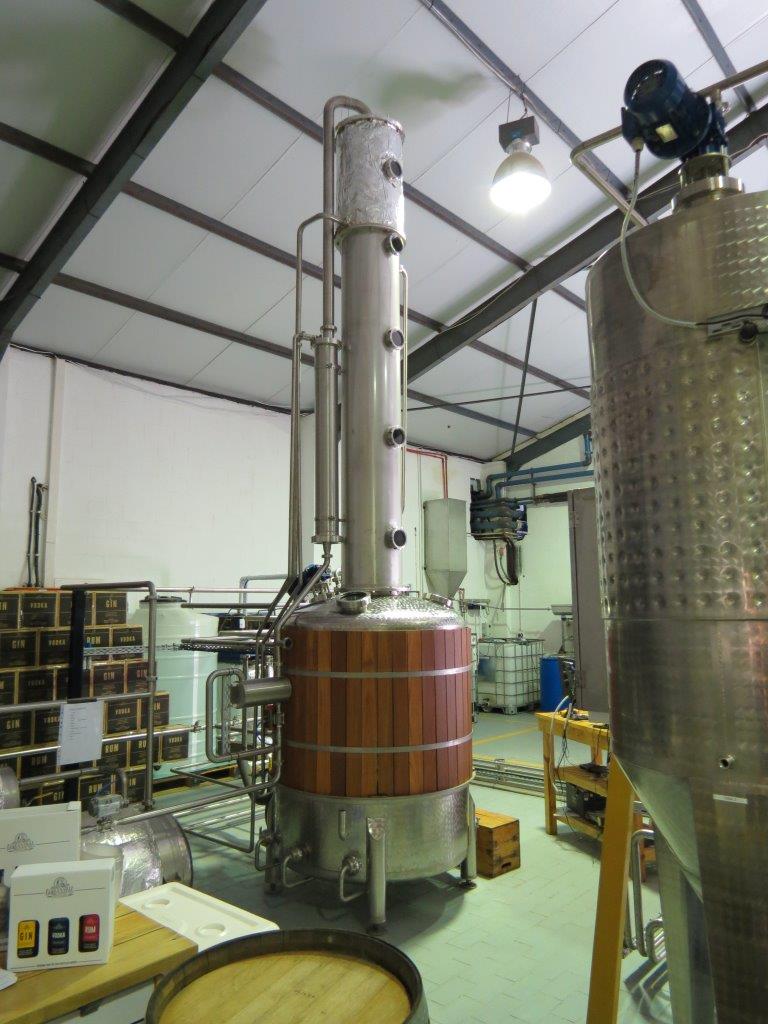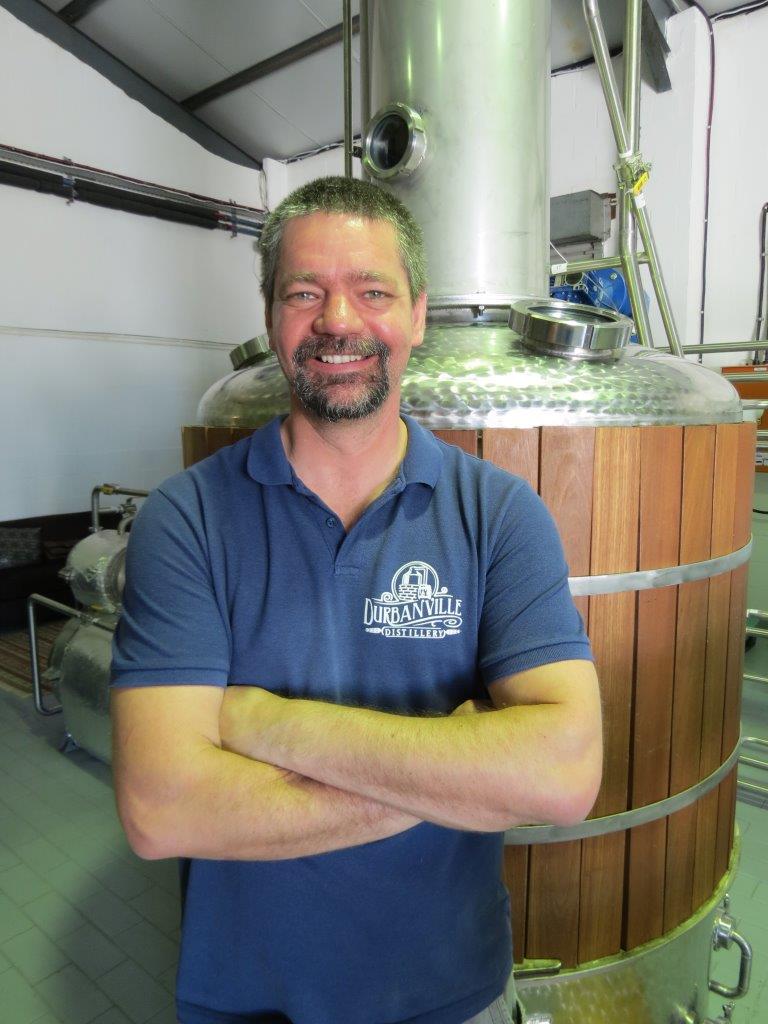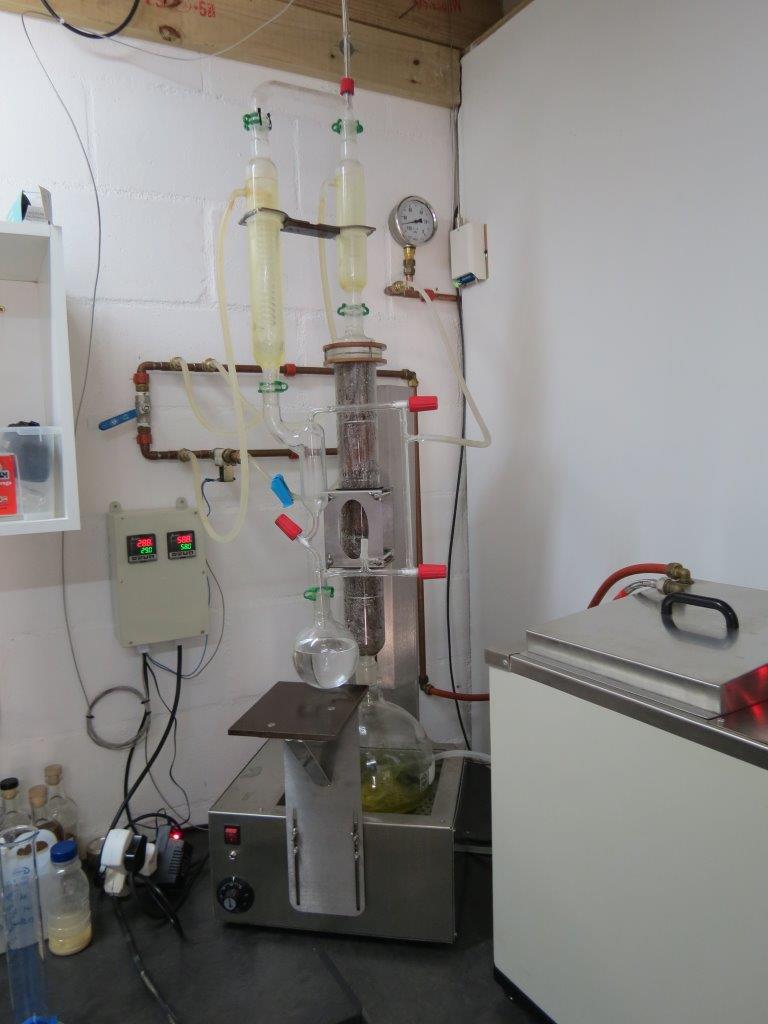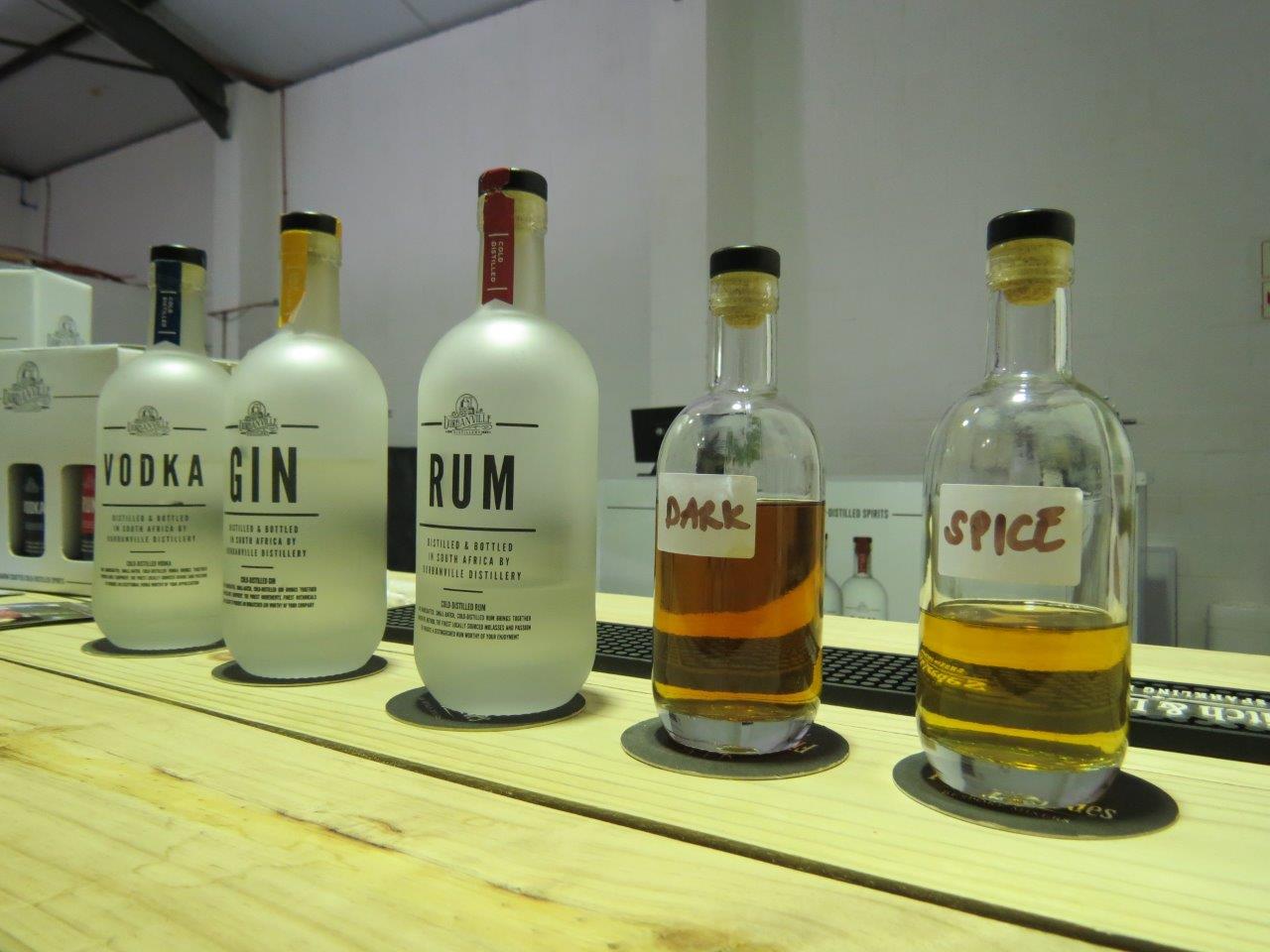The physics of distilling can’t change, but technological innovation does. Clifford Roberts paid a visit to a Cape Town distillery that uses a vacuum to make its spirit.
Eve is in mid-run when distiller Eugene Kleyn casually runs his hand along her stainless-steel belly. It’s an unbelievable sight because in almost every South African distillery at this stage of a spirit run, the still would have built up enough heat to melt a brick of frozen butter lying on the other side of the room.
But Eve – a 1000L still – is different. Eve gets to the boil at around 30°C because of the magic of the vacuum.

Eve
Vacuum stills are nothing new, says Durbanville Distillery distiller Robert Kleyn, who established the company with his father, Robert, some two years ago. Kleyn was an engineer in the oil industry for 12 years before teaming up with his father in an engineering business. At the same time, he wanted to keep up with his hobby of distilling.
“I used to travel to parts of the world where liquor was unavailable or terrible, so I started making sure there was fruit in the house and made my own using my wife’s pressure cooker,” he says.
He had experience of vacuum stills used in the process of oil refining. “They’re also used for the production of essential oils, but I couldn’t find one in use at local distilleries,” he adds. So, Robert and Eugene built their own.

Robert Kleyn – Distiller at Durbanville Distillery
Conventional distilling requires heating the pot to a point where alcohol separates from the liquid, which comprises mostly of water. The required heat decreases the higher you go because of the effect of air pressure, which explains why boiling rates are different between the coast and the interior.
The heat of the matter
“The vacuum we create has the effect of raising our still 25km into the air,” says Eugene. Without the vacuum, alcohol would start evaporating in the Durbanville location at around 78°C; the vacuum drops that to the temperature equivalent of a warm winters day – just 17°C.
The entire closed system, including the still and portholes of 8mm thick glass, has been designed to withstand the negative pressure. “Most distillers are very wary of pressure for very good reason, but the effect of a failure in this system simply means that the pressure returns to normal and product stops. And, unlike traditional stills, the operating temperature is very low.”
Lower temperature however, doesn’t mean cheaper energy costs because “cold distilling” takes longer to complete. Maintaining the integrity of the vacuum also takes some special equipment, some of which was imported from Germany, and skill. Taking a sample during a run for example, involves an 11-step process because merely opening a tap would neutralise the system to a standstill.
But, for Durbanville Distillery, slower distilling means gentler treatment of ingredients and therefore a better spirit.
The still spent a year in the engineering business before they were invited to set up at the more visitor-friendly Meerendal Wine Estate.
The distillery is involved in contract distilling and currently sells its own grain-based gin in the London Dry style; a grain-based vodka; and, a white rum with two new additions – a dark and spiced rum. The rums are made with molasses and sugar, and the darker versions aged in combinations of American and French oak casks, for less than a year.
More is in the pipeline: in the office-cum-lab of the distillery, stands Adam, a small-volume glass still that operates on the same principles as Eve and is used for experimentation.

Adam
There are rows of bottles with handwritten labels. Eugene talks with excitement about new projects and about the challenges of the legislative process in getting them passed; about the perceptions of other distillers of this vacuum technology and his attempts to keep pushing the envelope in a notoriously restrictive industry.
“People ask me why I keep it up when it can get so difficult sometimes,” he says. “They ask: why can’t you just go with the flow? But I can’t live like that.”



